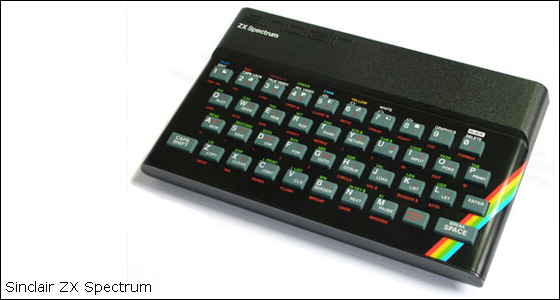Video Games as Cultural Symbols in the Global Cultural Supermarket
March 28th, 2009

I read a paper a few days ago taken from the first chapter of Gordon Mathews’ book Global Culture/Individual Identity – you can read the first chapter on Google Books (albeit with pages torn out). In the paper he dissects the two core definitions of culture; the traditional anthropological definition as “the way of life of a people” and the more progressive model of culture as “the global cultural supermarket”. Surprisingly the latter definition was completely new to me. On digging around the references it made sense as to why. Mathews had pretty much invented this term himself, although in the references he acknowledged previous examples on where the concept was touched upon briefly by other authors.
I don’t usually cross check references in such a way but this time I felt compelled to not only because the metaphor makes it easy to comprehend a particularly complicated issue but also because it’s such a very workable definition. Hardly perfect of course, as Mathews himself points out, but an interesting lens in which to view the subject matter.
The basic definition is that our consumerism defines our culture, the products we buy, things we consume are as Kathryn Woodward would say symbols of our identity. The global cultural supermarket is a vast database, but full access is privileged unfortunately, and this is one half of where the definition falls short. The cultural supermarket works well only within the model of modern affluent society. It doesn’t particularly cater well for lesser developed countries where the complete range of products within the supermarket is limited. Mathews slices this as being a flaw of the definition, I liken it more to an inherent issue that is part of the definition itself. Geographically the same issue exists as well, where geographical distance limits access, something Mathews didn’t actually touch upon.

The other weakness in the definition is that sometimes our consumerism within the market has no bearing on our identity. An example from the text is an American women who feels that she is of the wrong blood, so each week she eats sashimi, learns Japanese art and religion, all in the pursuit of being “the Orient”. While her involvement is governed for her lust to become Japanese, others participate in such activities purely for interest or simply because the food taste good – it plays little to no part on their concept of self identity.
Video games, like any form of consumer goods exert their own impressions of cultural identity, at least within the players mind. There’s something that has to be has to be said about fans of niche Japanese developers such as Altus, Nippon Ichi and SNK. Games consumerism is representative of culture, buying certain games and being an enthusiast of that flavour of gaming makes us appeared cultured to that respective origin.
You might be forgiven to think that I’m referring strictly to country culture (ie. culture as per the “the way of life of a people”). Where as in the case of the previous example, I’d be suggesting that players of these games would be in pursuit of the Japanese cultural identity, or at least the Japanese enthusiast/fan identity. This isn’t the only case, although it could be (again this refers to the second flaw). Players of those games may in fact be enthusiasts of the culture and identity created by the consumers of such games, I’m talking about fan cultures. Think of such purchases as aligning oneself to a particular fan culture/following.
These cultures are all multifaceted too. My previous example is by no means absolute. That is; playing games by those developers are not the fixed requirement of belonging to the culture of “Japanese wannabes”. This system is variable, and differs among tastes and interests. This is the crutch of the super market, of consumerism; you can pick and chose, accessorize if you will, or in less tainted terms create your own cultural identity through mixtures of different cultural symbols.

One last example to highlight the flexibility and divergent nature of culture. This time I’ll choose the symbols the Dizzy series, Sinclair ZX Spectrum and Rare Ware. These symbols are obviously synonymous with the 1980s through to early 1990 retro gaming scene in UK. Hence they fit under a variety of cultural spectrums: video games -> personal computer gaming -> the UK -> 1980-1990s era. And if we change one of those symbols to say the Commodore 64, the spheres of cultural influence shift again. Not to say that our original selection can’t be interpreted differently (because it can as well) but that on the whole the cultural effect of each piece is very vague. Every combination and each piece are culturally identifiable in many different interpretations, hence what they offer our identity is equally up for interpretation.
Perhaps I faltered with the last example, I don’t know. Whatever the case, you can see how games operate within this idea of the cultural supermarket. I’ve also used the concept as a vector to demonstrate how slippery it is to categorize and brand culture by relating it video games and Kathryn Woodward’s idea of cultural symbols. I hope it made some sense to you.



 Game Design Companion: A Critical Analysis of Wario Land 4 - $7.99
Game Design Companion: A Critical Analysis of Wario Land 4 - $7.99 Level Design: Processes and Experiences
Level Design: Processes and Experiences Speed Boost: The Hidden Secrets Behind Arcade Racing Design - $5.99
Speed Boost: The Hidden Secrets Behind Arcade Racing Design - $5.99 Adventures in Games Analysis: Volume I - $5.99
Adventures in Games Analysis: Volume I - $5.99







